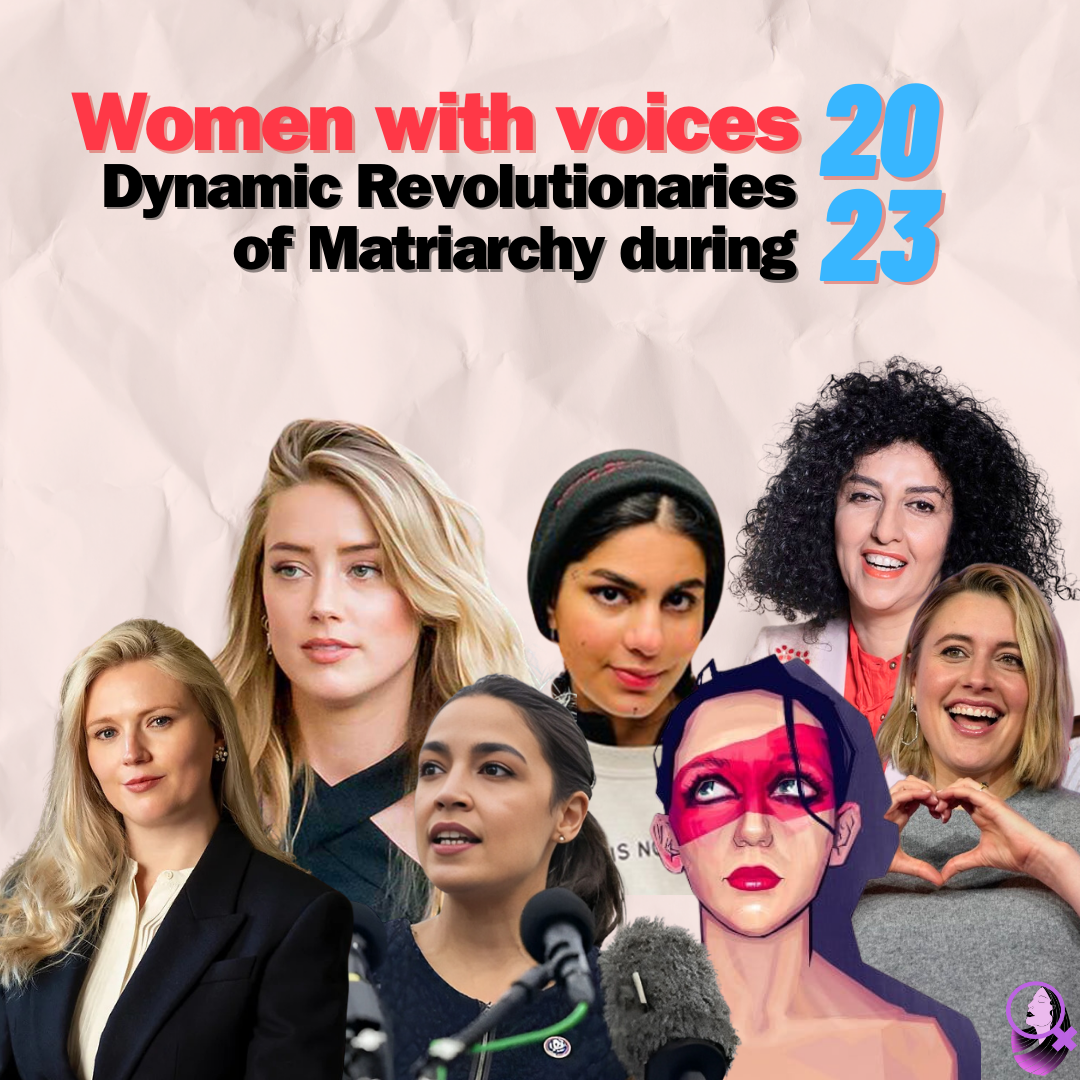
So, It's been a week since 2023 is over.
We're all a year older and hopefully a little wiser. But we’re also that much closer to achieving our dream of the ideal matriarchy. In the fight for women’s liberation from the patriarchy, we’re making progress. Communities like ours have helped women and men come together and share in knowledge, understanding and camaraderie.
The Matriarchy Times community knows that all women are important, unique and special. But in the past year, there were a few influential women that stood out to us. Across politics, academics, entertainment and activism, we've seen some especially amazing women who’ve fearlessly broken boundaries, going against the status quo and challenging the narrow ideals perpetuated by the patriarchy. These women are instrumental in keeping our dreams of a world where women rule alive. They stand as a living testament to the ongoing battle, proving that the fight for justice and equality is not just a historical one - it is a present reality, with women continuing to forge ahead, resilient and unwavering.
AOC
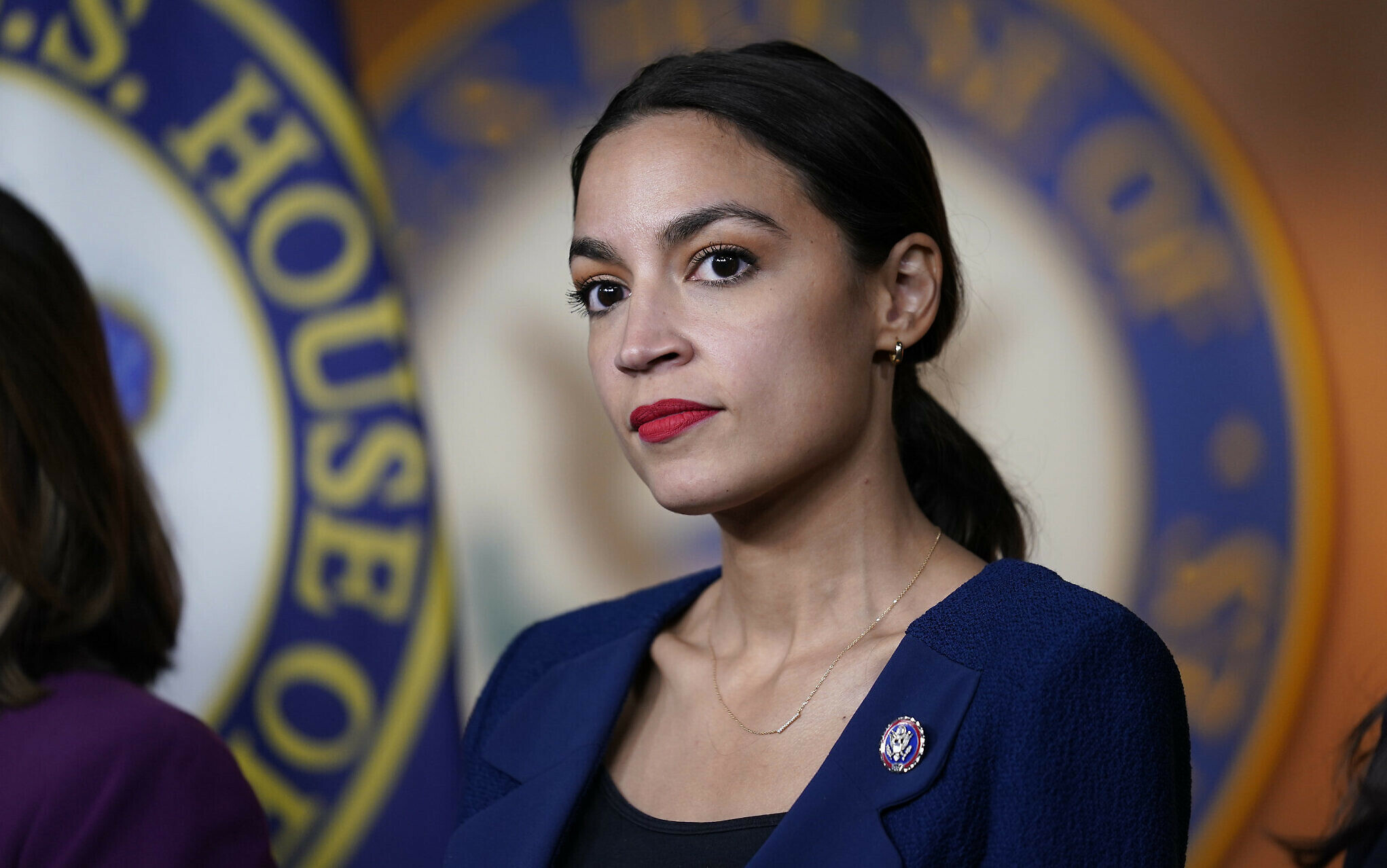
Alexandria Ocasio-Cortez, a.k.a. AOC stands out as a feminist leader who not only talks the talk but walks the walk. Through her fearless advocacy, AOC has become a trailblazer in redefining leadership through a feminist lens. Her influence extends far beyond the walls of Congress, making a lasting impact on the feminist movement and inspiring a new generation of activists. From championing reproductive rights to fighting for equal pay, she fearlessly tackles issues that disproportionately affect women. Her unapologetic approach challenges traditional norms and encourages others to embrace a bold stance on gender-related issues.
One of AOC's notable strengths lies in her commitment to intersectionality. She recognizes that feminism must address the unique challenges faced by women of different backgrounds, including race, socioeconomic status, and sexual orientation. AOC's advocacy reflects a nuanced understanding of how various forms of oppression intersect and compound, emphasizing the need for inclusive solutions - hallmarks of an ideal matriarchal society
AOC's ability to connect with younger audiences has played a crucial role in revitalizing interest in feminist causes among millennials and Gen Z. She cleverly uses platforms like Twitter and Instagram to directly engage with supporters, share her views, and counter opposition. By utilizing these channels, AOC transcends traditional political boundaries, effectively reaching a broader audience and shaping public discourse on feminist issues.
Greta Gerwig
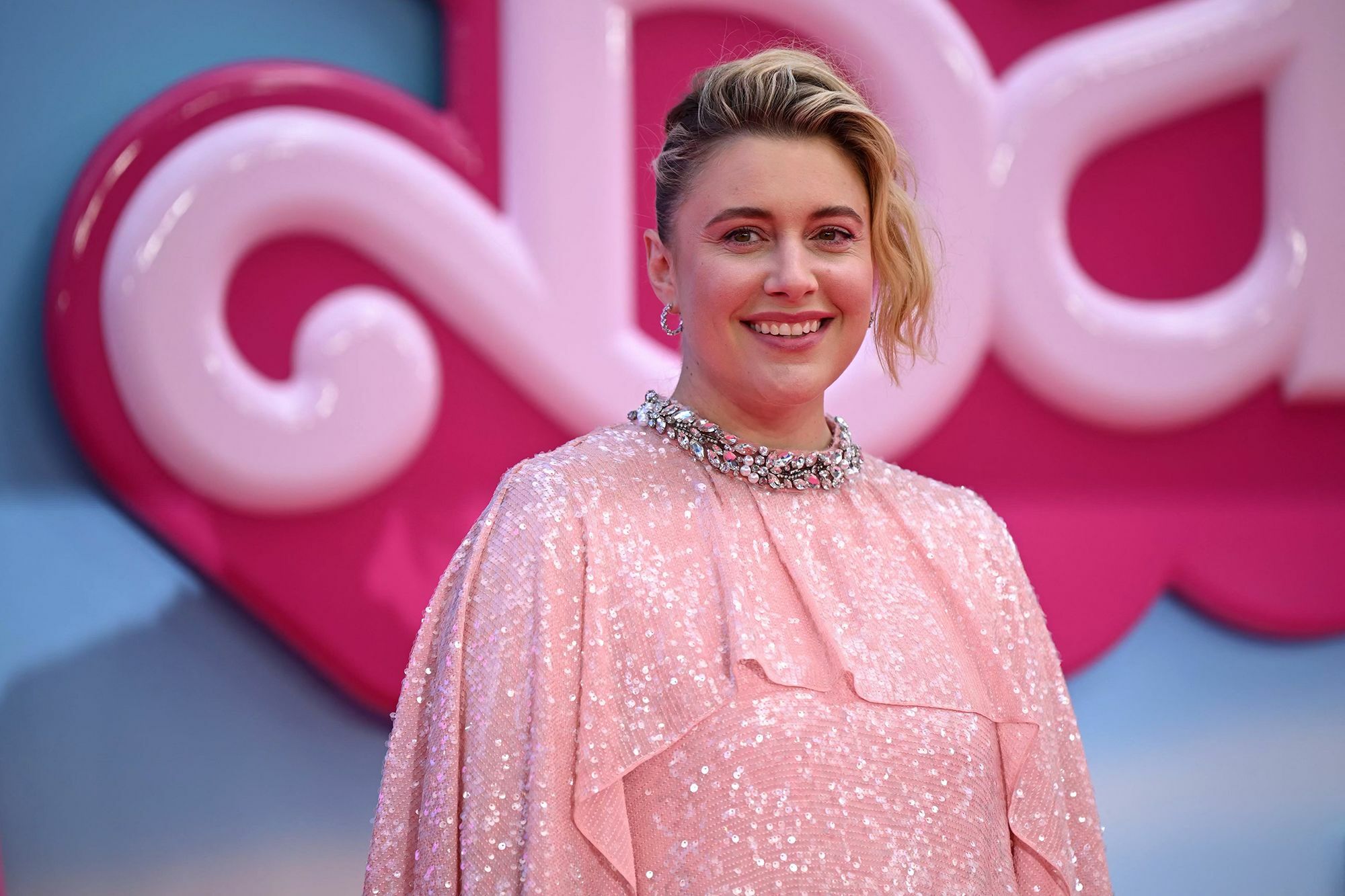
Greta Gerwig is no doubt one of the most talked about Directors in Hollywood right now. Blessed with acting chops, she is also an unapologetic feminist filmmaker. Her work both in front of and behind the camera reflects a commitment to telling stories that explore the complexity of women's lives and challenge traditional gender norms.
Gerwig's films often feature well-rounded, authentic female characters. From "Frances Ha" to "Lady Bird," and “Little Women” to “Barbie”, she crafts narratives that delve into the nuances of women's experiences, offering a departure from one-dimensional stereotypes and exploring nuanced perspectives of female characters.
With her groundbreaking 2023 movie, ‘Barbie’ that surpassed $1 billion at the box office, Greta Officially became the highest grossing female filmmaker of all time. ‘Barbie’ successfully brought conversations on matriarchy to the forefront and since the release of the movie, it has been discussed and debated in mainstream media at length. In “Barbie” the relationships between women also take center stage, offering a refreshing and authentic portrayal of the complexities and joys of female camaraderie and leadership.
Gerwig's storytelling acknowledges the intersectionality of women's experiences. While her narratives often focus on the lives of white women, she has expressed a commitment to amplifying more diverse voices and experiences in the industry.
Charlotte Proudman
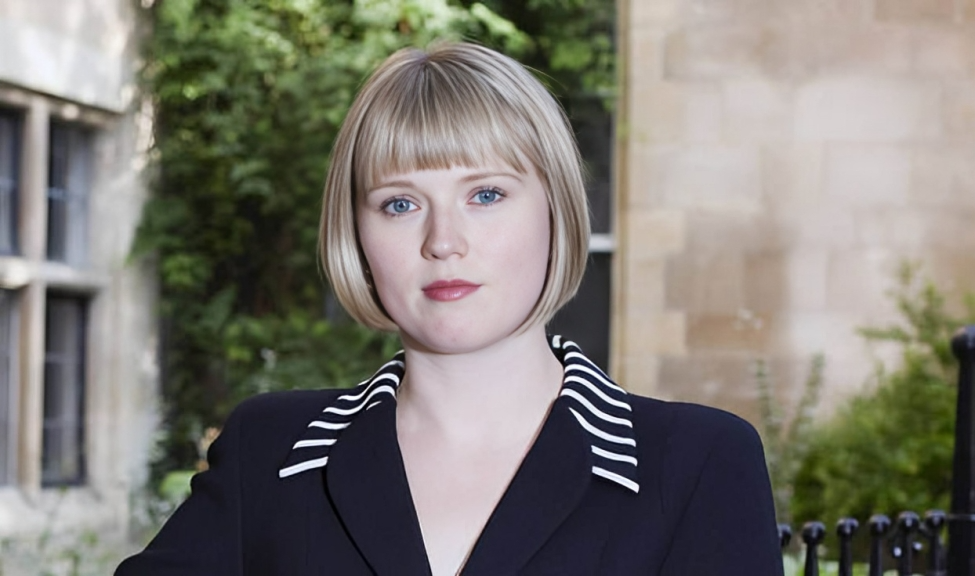
Dr. Charlotte Proudman, an award-winning barrister, academic, and advocate, stands as a powerful force in representing survivors of rape, domestic abuse, and controlling behavior within the family courts. Her impactful work extends beyond the courtroom, as she utilizes various media platforms to address issues related to feminism, gender equality, and professional ethics. Through her public engagement, Proudman has successfully drawn attention to crucial topics, sparking conversations about the urgent need for cultural and systemic changes in the legal sector to better protect victims.
Proudman's influence reaches legislative realms, where she played a key role in drafting legislation that led to significant changes. Her contributions include raising the age of marriage from 16 to 18, criminalizing virginity testing and hymenoplasty, amending the Domestic Abuse Bill, introducing FGM Protection Orders, and criminalizing forced marriage. Additionally, she authored the book "Female Genital Mutilation: When Law and Culture Clash" and founded the nonprofit organization Right to Equality, dedicated to challenging sexist and discriminatory laws that disproportionately impact women and girls. Notably, her advocacy for matrilineality gained attention when a viral tweet in August encouraged women in heterosexual relationships to consider giving their children their own surnames, emphasizing the importance of maternal identity in addressing gender imbalances without compromise.
Amber Heard
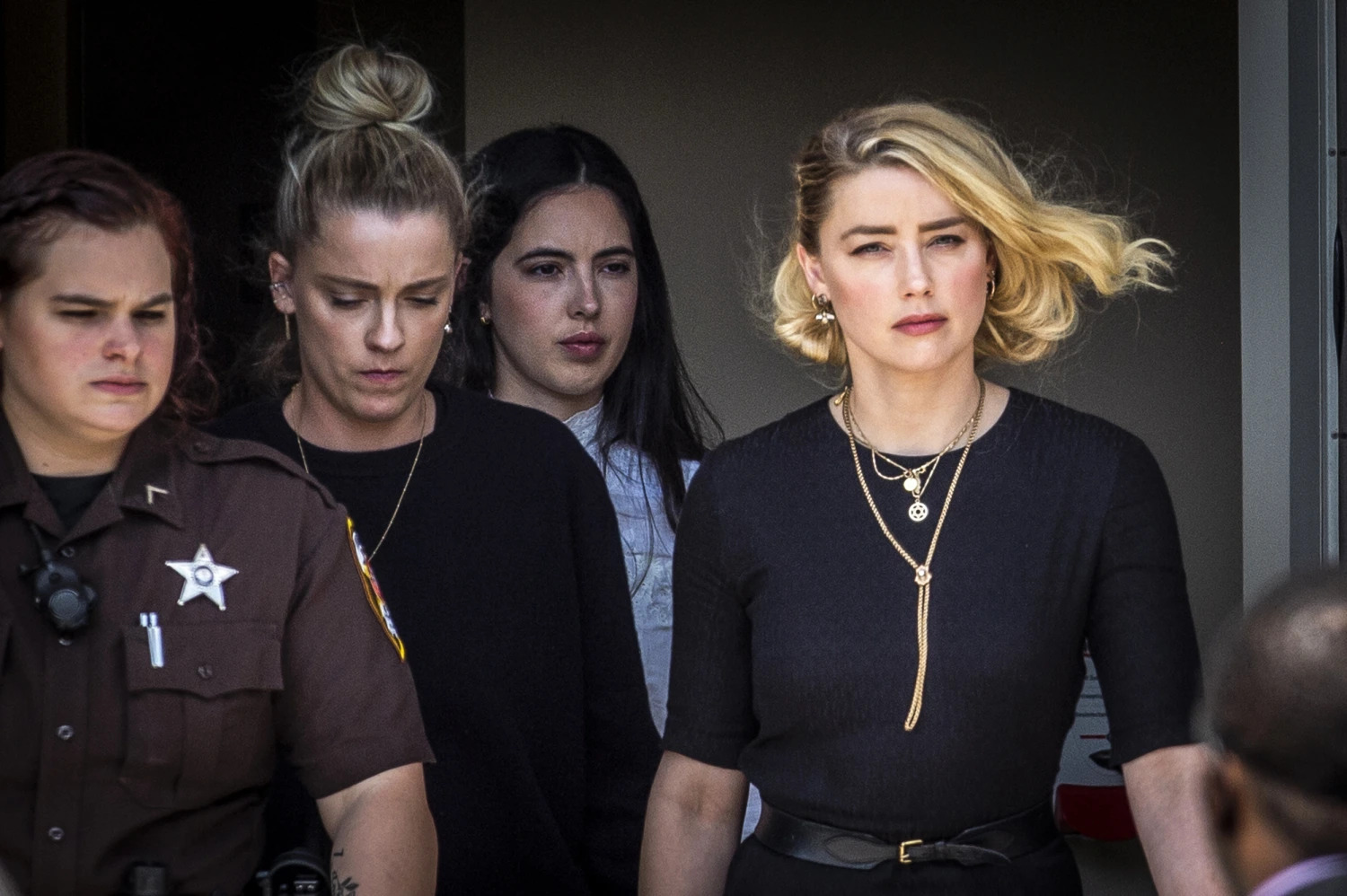
Amber Heard is an actress known for her roles in films such as "Aquaman" and "Justice League." She has been an advocate for the rights of survivors of domestic violence and has spoken openly about her own experiences. In 2019, she wrote an op-ed for The Washington Post discussing the backlash she faced after accusing her then-husband, Johnny Depp, of domestic abuse. The op-ed focused on the importance of speaking out about domestic violence and the challenges faced by survivors.
Heard has been associated with organizations and campaigns working towards ending domestic violence and supporting survivors. Her public stance on these issues, particularly in advocating for women's rights, safety, and the need for societal changes to address domestic abuse are crucial to bringing the needs of women to the forefront.
Narges Mohammedi
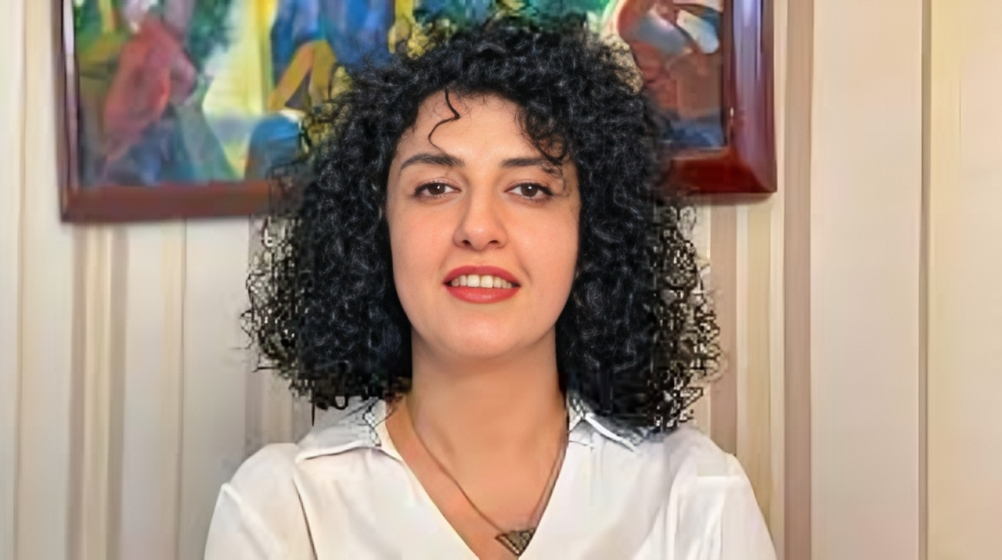
Narges Mohammadi stands as a symbol of courage and dedication to feminist and human rights causes in patriarchal Iran, where her journey has been characterized by activism, imprisonment, and an unwavering pursuit of justice. Born in 1972, Mohammadi's activism began during her university years as a physics student, challenging societal norms and advocating for women's rights. Her early arrest for participating in student protests ignited a lifelong commitment to fighting for the marginalized, particularly women, in the face of systemic discrimination and restrictions within Iran's strict political and religious climate.
Mohammadi's influential contributions extend across various fronts. She boldly challenged Iran's compulsory hijab law, advocating for women's freedom of choice and bodily autonomy. Beyond feminism, she co-founded the Defenders of Human Rights Center, actively opposing the death penalty, advocating for fair trials, and documenting human rights abuses. Despite facing persecution, including arrests and imprisonment, Mohammadi remained steadfast in her commitment to peaceful resistance. She empowered incarcerated women through educational initiatives, providing knowledge and fostering resilience. Her global recognition, including the prestigious Nobel Peace Prize in 2023, serves as a beacon of international solidarity with the Iranian people's struggle for freedom and human dignity, showcasing Mohammadi's enduring legacy as an inspiration for activists worldwide.
Viola Voltairine
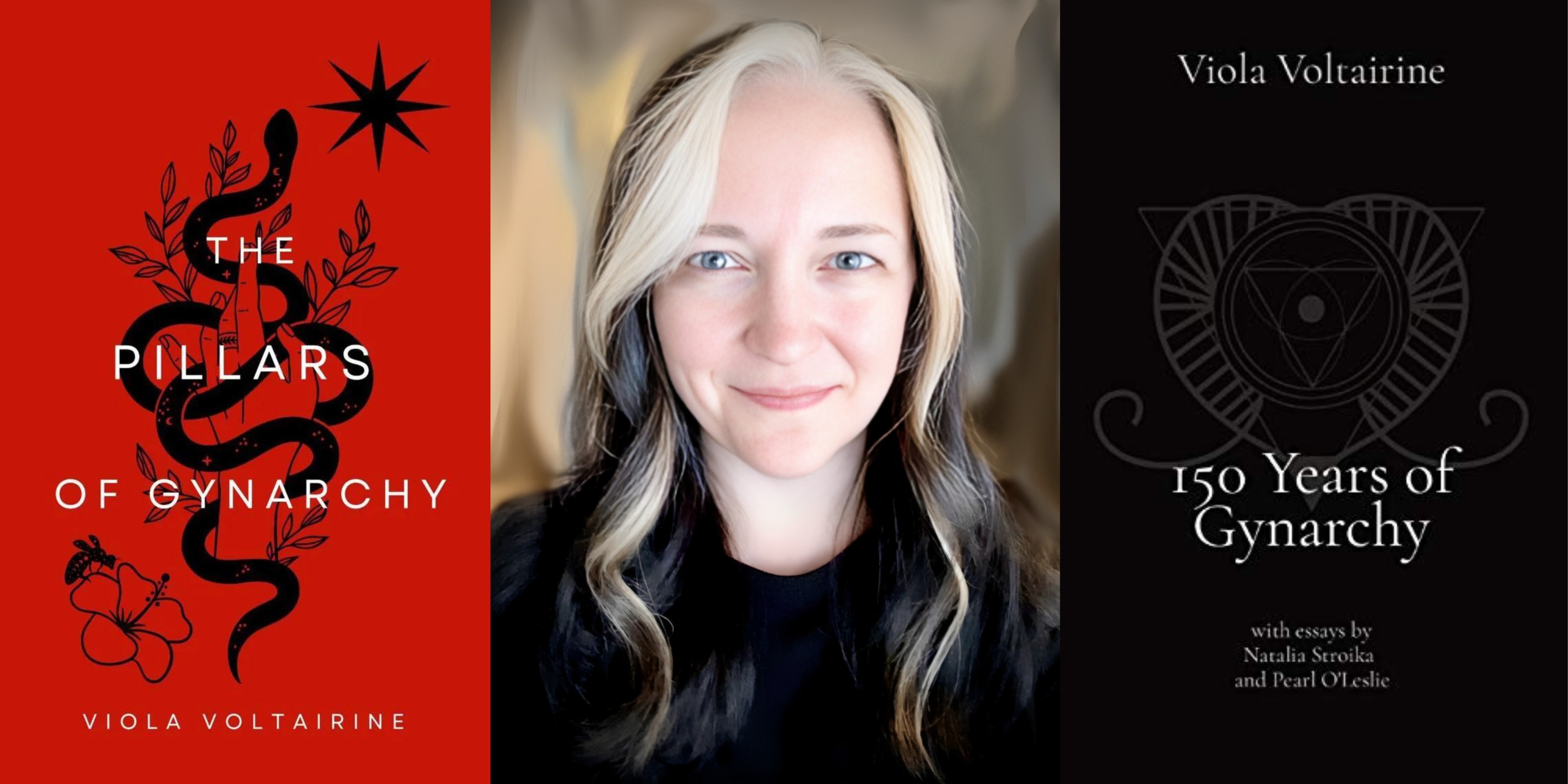
Viola Voltairine embarked on her writing career with the unprecedented "150 Years of Gynarchy," exploring the confluence of FemDom and feminism. A multifaceted artist, she has engaged in diverse roles, from directing the Z Film Festival to founding Artvamp, a production company that has produced award-winning films. Voltairine's creative pursuits extend to teaching courses on female-led relationships and mentoring in hypnosis and mind control. Beyond her professional endeavors, she is a mother and grandmother who enjoys reading, gardening, and podcast creation.
Her latest contribution, "The Pillars of Gynarchy," challenges traditional views on gender roles and societal structures, presenting a vision where women possess full agency over their lives. Delving into the concept of Gynarchy, the book explores eight pillars encompassing personal, political, and social relationships. Voltairine provocatively questions the transformation of traditionally masculine traits and envisions a world where men defer to women's authority. This work invites readers to reimagine power dynamics, urging a shift toward a more harmonious and equitable society guided by the principles of Gynarchy.
Ayisha Siddiqa
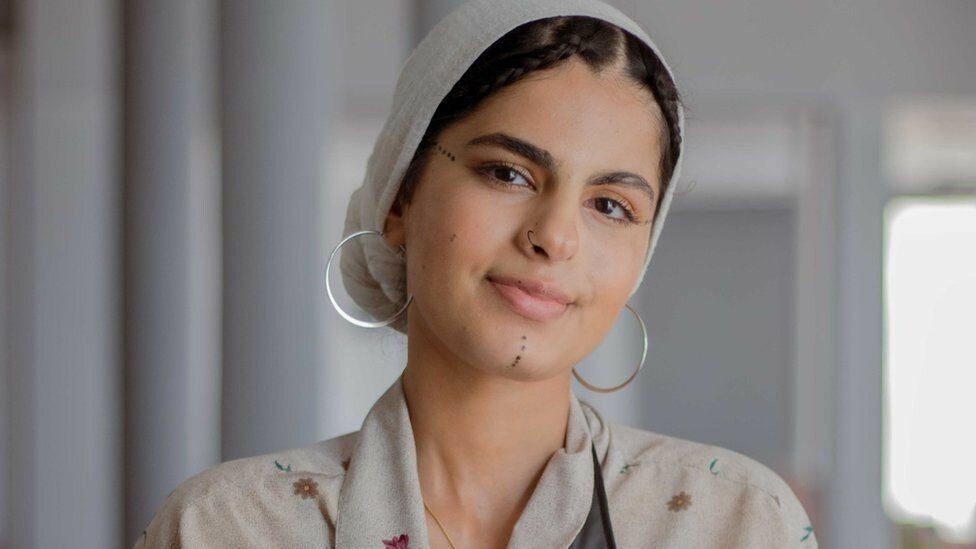
Ayisha Siddiqa, a 24-year-old Pakistani human rights and climate advocate, employs poetry as a powerful means of protest and hope in the face of environmental challenges. Raised in a matriarchal, tribal community in eastern Pakistan, Siddiqa's unique perspective sees the wounded world as beautiful, resilient, and continually giving life. Her journey, marked by early exposure to environmental hazards and a later connection between human rights and climate change, drives her commitment to defending life and, by default, women's rights and human rights.
At the U.N. Climate Conference in November 2022, Siddiqa delivered a poignant poem criticizing leaders' inaction on climate change, showcasing her dedication to using art as a tool for social change. Witnessing the life-altering impacts of Pakistan's floods, heightened by global warming, fueled her poetry as a form of protest—an effort to encapsulate the urgency for action.
Siddiqa has Co-founded initiatives like ‘Polluters Out’, participated in the Fossil Free University, an activism training course and was included in Time Magazine’s list of Women of the Year for 2023. Her connection to her matriarchal community is evident in her commitment to an intergenerational approach, collaborating with younger generations to pass on knowledge and ensure the continuity of the fight for environmental justice. Ayisha Siddiqa's activism is not just a pursuit of environmental sustainability but a deeply rooted defense of life, influenced by the values instilled in her by her matriarchal upbringing.
